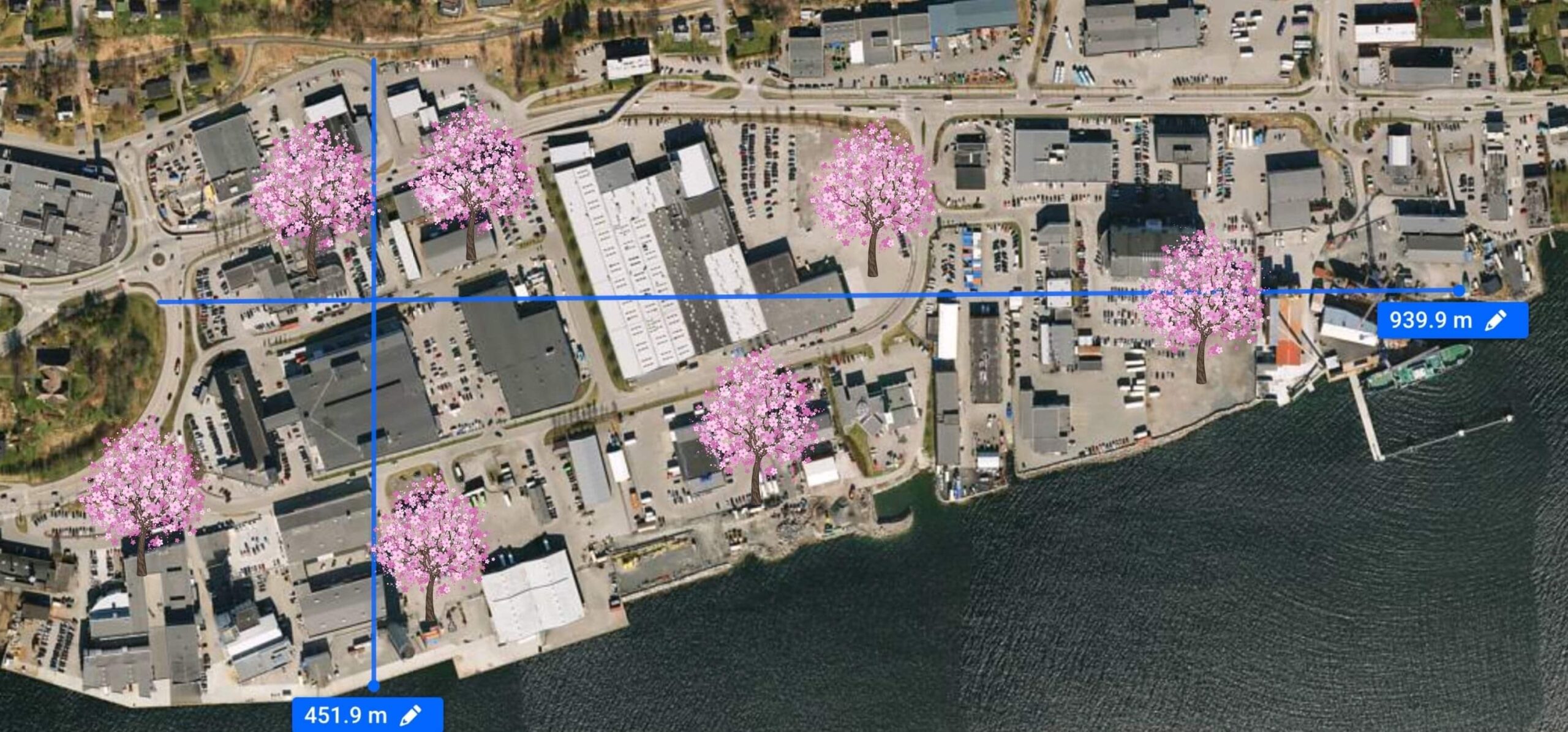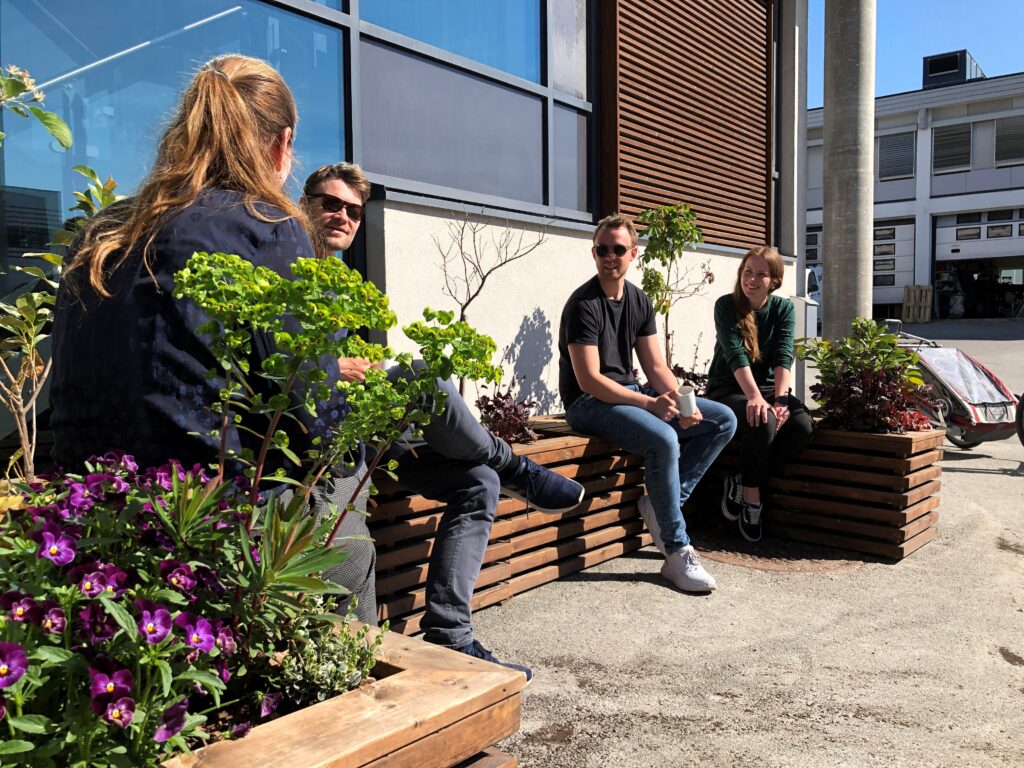Planting apple trees to help save our bumblebees
MOLDE, Norway, 23 May 2022 – This year, Axess started to sponsor apple trees in the vicinity of its headquarters in Molde, Norway. The idea behind is the bumblebee’s range of 800m. Through this project, the company hopes that other companies in the neighbourhood will permanently adopt the apple trees and initiate their own projects, to contribute to the biodiversity in the urban area.
“As a robust global company that currently operates offices in 19 countries worldwide, we have the opportunity and the responsibility to make a difference. Besides increasing awareness of the importance of biological diversity and inspiring more initiatives, we want to motivate employees to make responsible decisions both at work and in their personal lives,” Therese Monsås, CPOO at Axess said.
In addition to offering apple trees in pre-filled plant pots throughout the spring, they would be filled with various flowers and edible plants. This project is in collaboration with two local urban farmers, Anne Wold and Maria Berg Hestad.
“Biological diversity is largely about creating habitat. When the apple trees are spread out, they become a control tower for biological diversity in the area,” Anne Wold said.
“Aside from decoration purposes, these small green habitats will attract insects and birds, and help to raise awareness amongst everyone who travels to the area. And if we succeed, there will be apples to harvest,” Maria Berg Hestad said.

(Photo: Map of how the trees are spread over the area around Axess HQ in Molde, Norway. Credit: Anne Wold)
Building a strong sustainability culture
While sustainability has been higher on the agenda in society in recent years, the focus is not new to Axess. The company has had a mission to help customers achieve safe and efficient operations with zero harm to people, equipment, environment, and climate since its inception in 1998.
“To be able to develop and deliver the smartest, most efficient, and most sustainable solutions to our clients, it is important to build a strong culture and raise awareness around environmental protection, and focus on taking care of the resources we have,” Monsås said.
Axess has always been committed to building a strong sustainability culture within its ranks. In early 2018, the Axess Climate Roadmap initiative was taken with the intention to reduce its own emissions from operations and to help their clients reduce their emissions.
In the same year, a specialised bike garage was established at the headquarters. Axess encourages its employees to commute to work on foot, by bicycle or any other efficient transport method, as part of its efforts to reduce carbon footprint outside of work. Even though that does not cut most of the carbon emissions, it encourages them to lead a healthier and more productive and climate efficient lifestyle.
In 2019, Axess started to develop systems and tools for monitoring carbon footprint. In 2020, the company established an urban garden at its headquarters with both decorative and edible plants with the intention to inspire and motivate employees to make a difference in their daily lives and encourage their families and friends to do the same. The entrance, surrounded by greenery, is a welcoming place for employees and visitors, and a nice place to take a break.

(Photo: Entrance of headquarters in Molde, Norway, featuring a part of the Axess Urban Garden. Credit: Synne Litlere, Inventas)
About biodiversity
Biodiversity, or biological diversity, is at the heart of sustainable development. While there is a growing recognition that biological diversity is a global asset of tremendous value to future generations, the number of species is being significantly reduced by certain human activities. Given the importance of public education and awareness about this issue, the UN decided to celebrate the International Day for Biological Diversity annually on May 22.
Header photo by Kirsti Edøy, RB